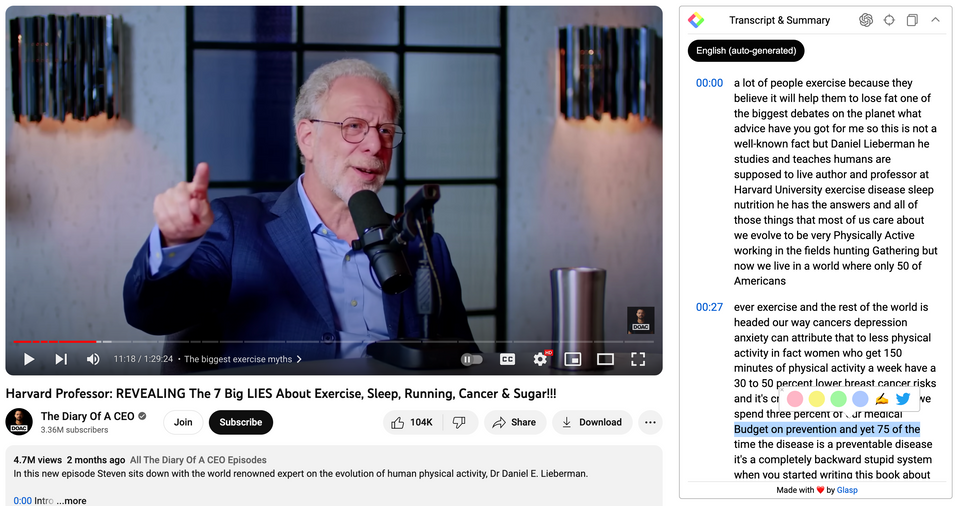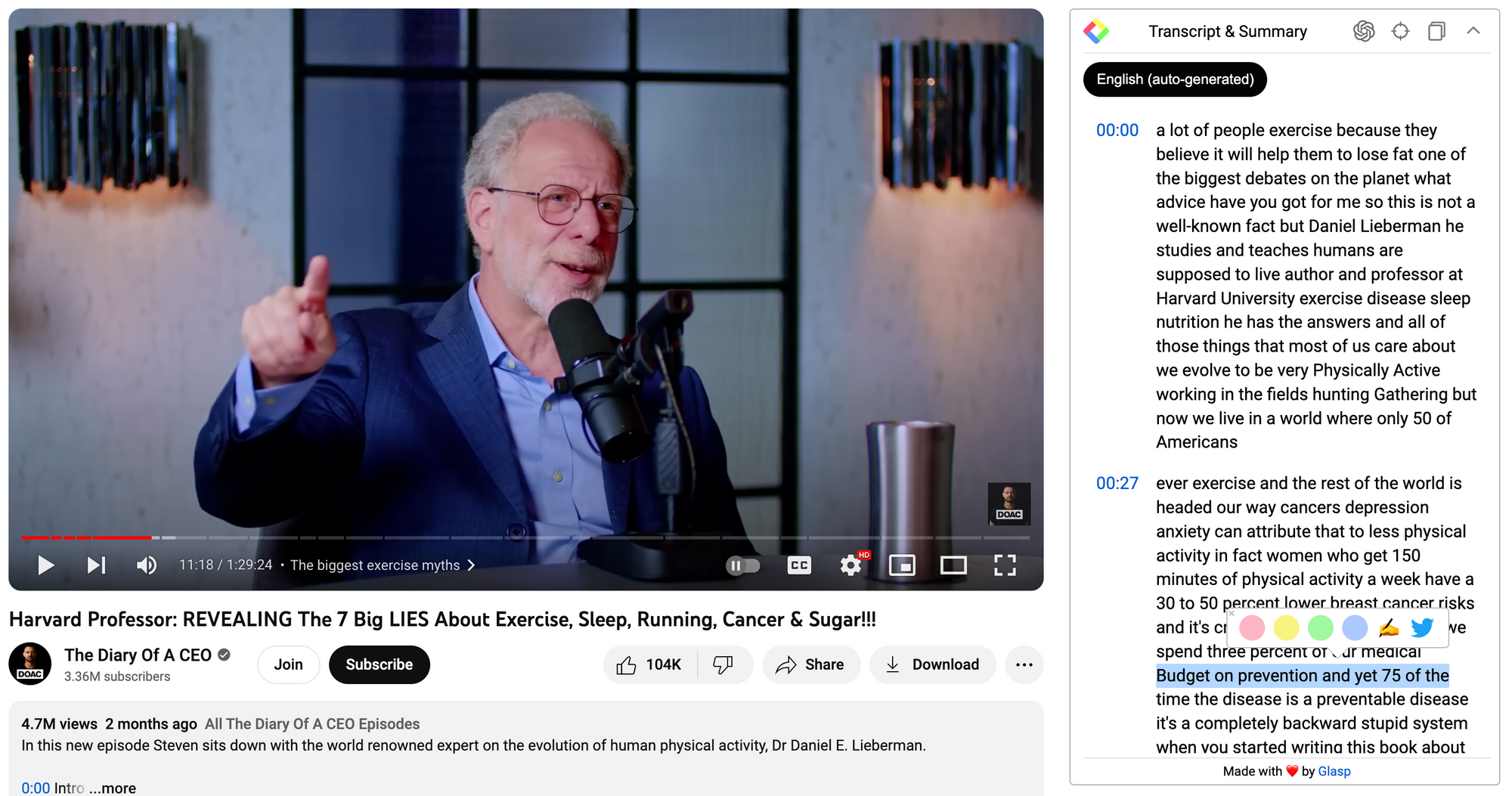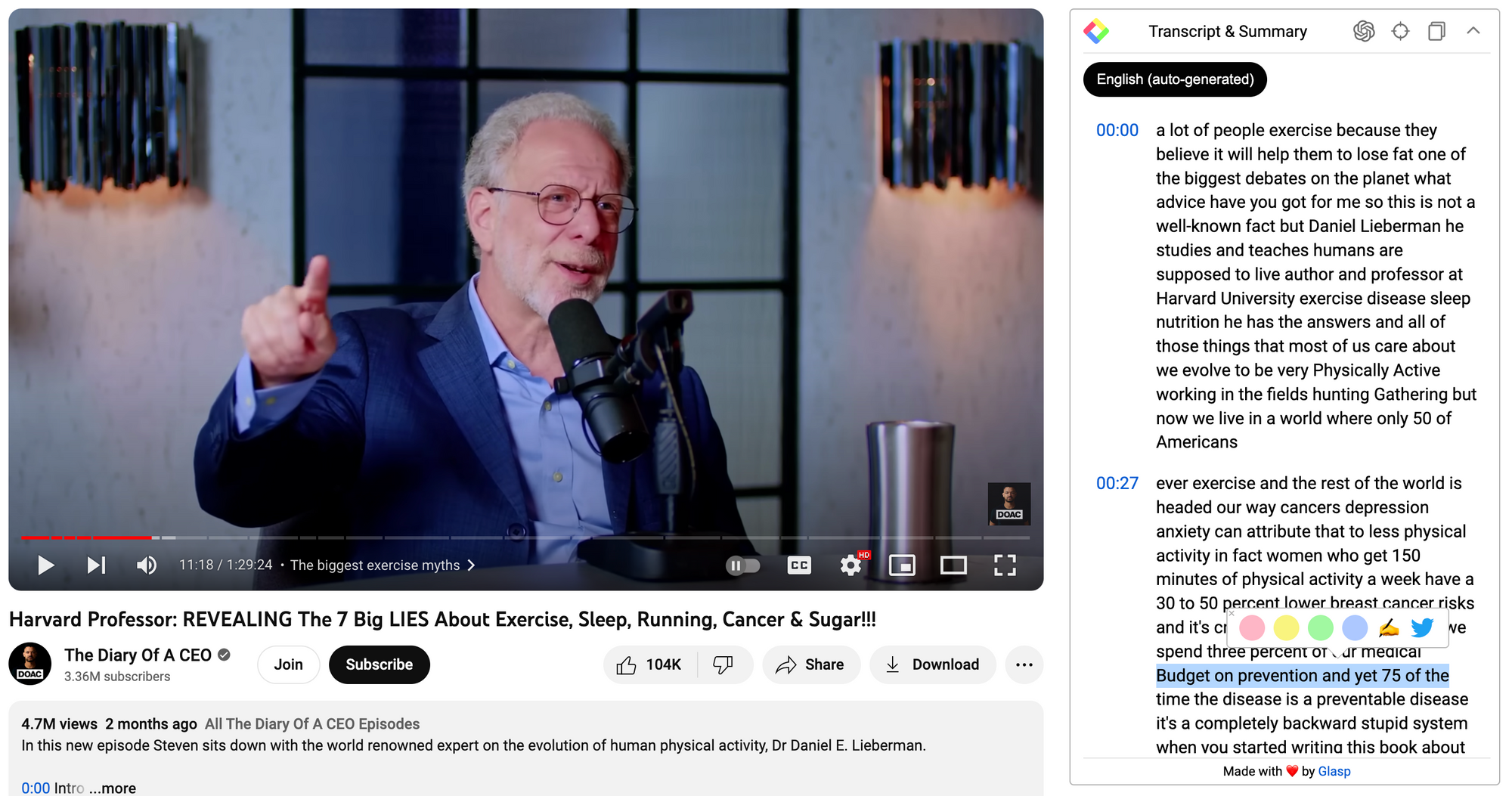Harvard Professor Dr Daniel E. Lieberman - Bridging Our Past and Present: How Evolutionary Insights Shape Healthier Lifestyles: Summary and Q&A

Introduction
In today's digital age, navigating the vast sea of health information can be overwhelming. With myths and misconceptions about exercise, sleep, and diet making waves, we turn to renowned Harvard Professor Daniel Lieberman to debunk common fallacies. As an expert in evolutionary medicine, he sheds light on the truths behind activity, health, and well-being, diving deep into critical subjects that have long puzzled us. This video seeks to clarify misconceptions and guide viewers on a path of informed well-being.
Summary
- Physical activity has significantly declined: Over 50% of Americans do not exercise regularly, leading to a rise in preventable diseases such as cancers, depression, and anxiety.
- Health systems are skewed: Only 3% of the medical budget is spent on prevention, despite 75% of diseases being preventable.
- Sleep and sitting contradictions: Although there's a push to sleep more and sit less, data shows variation in optimal sleep time based on age. Sitting, often compared to smoking, is natural and done by all animals.
- Misconceptions about health: Western lifestyle leads to increasing blood pressure as people age, which is not a global norm. High insulin levels, associated with a sedentary lifestyle and diet, are carcinogenic and can fuel cancer cells.
- Exercise myths: The idea of doing 10,000 steps daily is based on cultural notions. Strength training is crucial as one ages to counteract the physiological aging process. Running techniques also play a role, with many running incorrectly due to cushioned shoe soles.

Q&A
What is evolutionary medicine?
A: Evolutionary medicine, sometimes called Darwinian medicine, is the application of evolutionary theory to understanding health and diseases. It considers how our evolutionary past affects current physiological processes, which can give insights into why certain health issues arise in modern environments.
How does our evolutionary past influence our need for exercise?
A: Our ancestors led active lifestyles, hunting and gathering for sustenance. This consistent activity shaped our bodies and metabolism. In today's sedentary world, our body still craves that movement, and exercise becomes essential for maintaining optimal health.
Why do modern diets differ from what our ancestors ate?
A: Modern diets are heavily influenced by agriculture, processed foods, and global trade. Our ancestors consumed what was locally available, resulting in a diet that was diverse, seasonal, and less refined than today's common foods.
How does sleep tie into our evolutionary past?
A: Before artificial lighting, humans slept in alignment with natural light-dark cycles. Evolutionarily, our bodies are wired to sleep when it's dark. Disruptions to this pattern, like late-night screen exposure, can affect our health.
Are there evolutionary reasons for obesity in the modern world?
A: Evolutionarily, our bodies are designed to store fat during times of plenty to survive lean periods. However, in today's world of constant food availability and reduced physical activity, these adaptive mechanisms can lead to obesity.
What are the misconceptions about exercise that Professor Lieberman discusses?
A: One misconception is that exercise is only for weight loss. In truth, regular physical activity offers numerous health benefits beyond weight management, such as improved mental health, reduced risk of chronic diseases, and enhanced longevity.
Does evolutionary medicine suggest a specific diet?
A: Evolutionary medicine doesn't prescribe a one-size-fits-all diet. However, it highlights the importance of whole foods, diversity, and balance, reflecting how our ancestors ate, which is inherently more in tune with our biology.
How do modern lifestyles clash with our evolutionary needs?
A: Today's sedentary habits, constant access to high-calorie foods, and exposure to artificial lighting can conflict with our evolutionary wiring, leading to health issues like obesity, sleep disorders, and chronic diseases.
What are the benefits of aligning our lifestyle with evolutionary insights?
A: By understanding our evolutionary past, we can make choices that align with our biological needs, potentially leading to improved health, better mental well-being, and increased longevity.
How does Professor Lieberman suggest we integrate these insights into daily life?
A: He recommends incorporating more daily movement, prioritizing sleep, consuming a diverse and whole-foods-based diet, and being mindful of our body's cues. Small, consistent changes can make a significant impact on our health and well-being.
Before you leave

